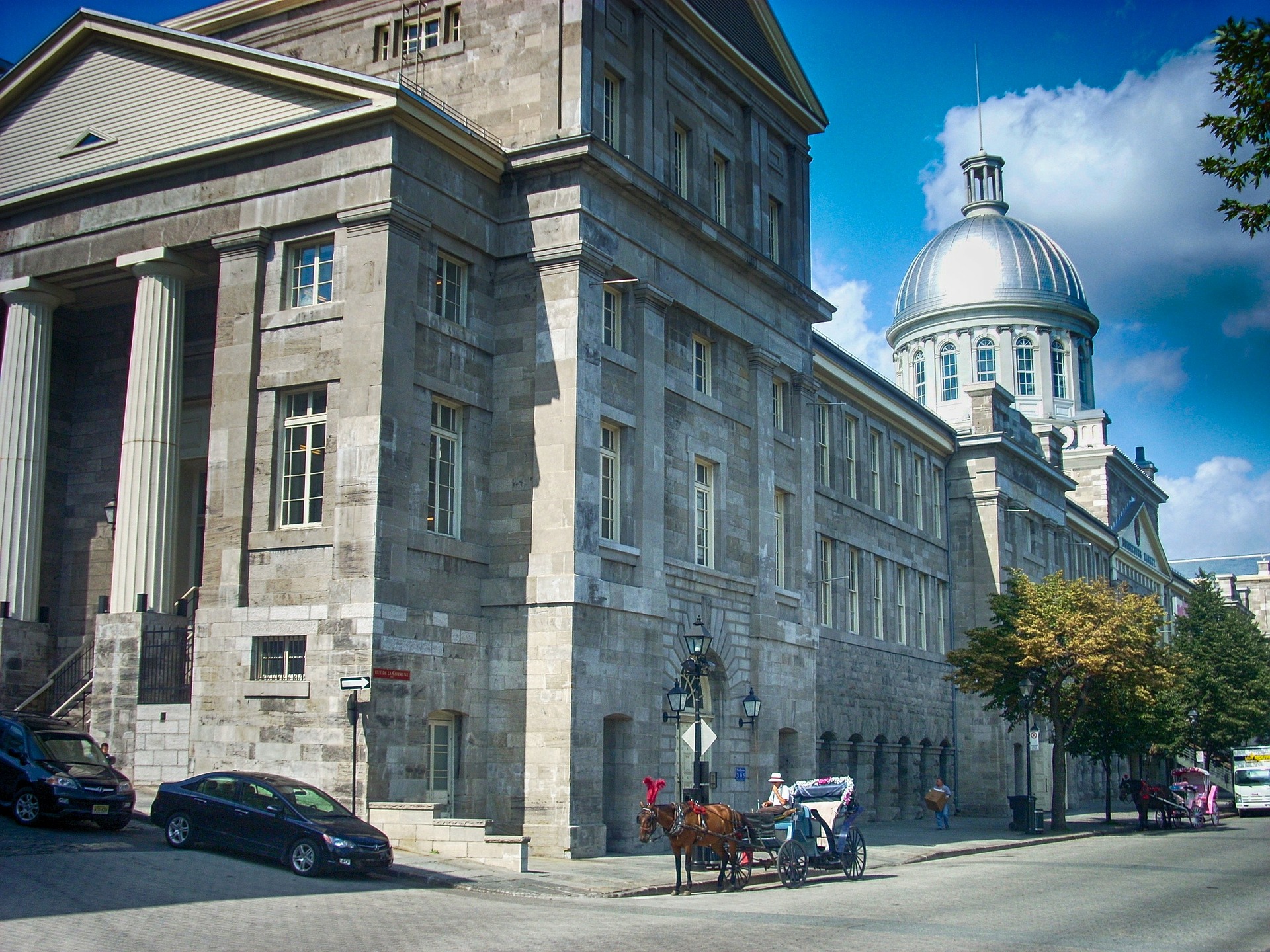May 17, 2017 8 min to read
Today, Montreal celebrates its 375th Birthday! The good, the bad, the ugly
Category : Complaints, Politics
Montreal is the biggest city in the province of Quebec, and it is also the second biggest city in Canada, and the second biggest French-speaking city in the world, behind only Paris. Let’s talk about Montreal.
The good
Montreal is a vibrant and dynamic city, and probably the festival capital of North America.
Have you ever seen the list of festivals held in the summer in Montreal? The International Fireworks competition, the Jazz festival, the Festi-Blues, the Just-for-laugh festival, Nuit d’afrique, Fantasia, Comic-Con and so many more since I am only listing off the top of my head which festivals I either frequented or researched enough to consider attending!
We have an extensive and rapidly growing bike-lane network, with the world-renown Bixi bike rental company, several bike events like the Tour de Montreal, the Tour de Nuit, and even the World Naked Bike Ride.
We have highly rated restaurants, nightclubs and once, the Club Dome was the second biggest dance floor on the East coast!
Montreal has a good subway system, multiple commuter train lines and is about to get an electrical rapid transit system which will revolutionize mass transit in the city.
We have multiple beautiful parks, including the Park du Mont-Royal and its breath-taking observatory, the Jardin Botanique (designed by the same designer as New York’s central park), and a vast network of nature parks where you can ride your bike, ski and observe animals in the middle of a vibrant city.
Montreal is the home of various game production companies and many top-selling video games were developed and produced in Montreal itself. Many blockbusters, including the last few X-men movies, were filmed in Montreal and our local cinema produced world-acclaimed gems.
Montreal is also generally renowned as a tolerant and friendly city with little racism and homophobia, but to believe that, you would have to avoid reading English Canadian newspapers who falsely depicts French-Canadians as being racists and xenophobes. Yes, you can find racists in Quebec (like anywhere else), but most of the areas with a high number of racists are in rural areas, away from Montreal (like almost anywhere else).
Thanks to having been the host of the 1976 Summer Olympics and the 1967 World Expo, Montreal has been known worldwide as an international city. We notable host the International Civil Aviation Organization and the World anti-doping organization.
Several protocols were signed in Montreal, and we have 4 well-perceived Universities, including the well regarded McGill University.
The port of Montreal is the second biggest inland port in the world, after Rotterdam, and the Mirabel airport was once pitted to become the biggest airport in the world.
The bad
But let’s be honest, Montreal hosted the Olympics 41 years ago, and the world expo 50 years ago. Our subway is currently running with obsolete rolling stock and has frequent outages. New rolling stock is being built, but the deployment is slow. Plus, the Subway has to be closed several hours each night for maintenance and only covers a small portion of the city.
To continue with mass transit, buses aren’t run like Montreal was a single city, but rather, they are run in distinct areas so that traveling from one area of Montreal to another by mass transit can be a nightmare of delays and transfers.
Montreal used to be an economic powerhouse, but it feels more and more like it’s running on fumes.
Its textile district has been on the decline for decades, its petroleum refineries (once a major powerhouse for the city) having been closing at a steady rate over the years, both of Quebec’s car factories (which were in the general Montreal area) closed decades ago and many manufacturing companies, some established several decades ago are moving away. and the port of Montreal is but a shadow of what it once was, with the Mirabel airport having closed officially more than 10 years ago.
Montreal is still a great city, but it’s no longer the economic powerhouse it once was, it’s no longer the front door of North America (thanks to its port), and it’s no longer the massive airplane hub of the East Coast (thanks to the Mirabel airport)
Oh, because Montreal was pitted to become the biggest airplane hub of the East Coast, thanks to its North East position which allowed planes who needed to travel next Greenland and Iceland to save fuel on their trip from North America to Europe by making a layover at the Mirabel airport.
New fuel-saving technologies and changes in the ETOPS airplane rules made Mirabel obsolete.
The ugly
The problem isn’t that Montreal is slowing dying. The problem is that it wasn’t entirely a natural death. Montreal was murdered.
Granted, I will admit that this is the Quebec nationalist point of view, but this is a point of view I happen to share.
Montreal’s decline isn’t 100% its fault (though it shares part of the blame notably by not curbing corruption, by not creating enough incentive to invest in Montreal and by not being proactive enough in its mass transit planning).
The problem with Canada in general and to point it further, with Ottawa in particular, with many decisions made by the federal government end up putting another nail in Montreal’s coffins.
Unlike the nationalists, however, I do not think that it’s premeditated murder. Ottawa has to rule for all of Canada, and since Ontario is one-third of the Canadian population, any decision favoring Ontario will often favor Canada as a whole, considering Ontario is the biggest slice of the cake.
One big piece was the creation of the St-Lawrence waterways by the federal government. The Lachine Rapids prevented ships east of Montreal to travel to the west of Montreal. This lead to the creation of the Montreal port to offload cargo which would either be carried by train (The CN headquarter was built in Montreal for that purpose) or by boats on the other side of the rapids. The St-Lawrence waterways opened the great lakes to ocean-going ships and pretty much killed Montreal’s port. Am I opposed to the St-Lawrence waterways? Of course not, it was and still is vital to Ontario and all of the Great Lakes US States, but the fact remains that it killed one of Montreal’s greatest advantages.
Mirabel could have been a success. It was a world-class airport, allowed the biggest airplanes of the time to land and take-off safely and even had plenty of surrounding farmland in case of a crash. Furthermore, it could operate 24 hours per day, 7 days per week!
But Ottawa decided not to close the Dorval airport, not only depriving Montreal of prime real-estate in the middle of one of its industrial sectors, but the federal government decided to keep all domestic flights in Dorval. This meant that a flight from Detroit to London with a layover in Montreal required not only changing planes but also changing airport with a 60 to 90 minutes uncomfortable bus ride between the two airports!
International travelers began hating Montreal with a passion, which greatly favored Toronto and New York as hub cities. When it was clear that Montreal couldn’t support 2 airports, Ottawa decided to keep Dorval, which cannot operate at night, is in the middle of the city and worse, cannot grow, and instead, it close Mirabel.
What about the textile industry?
One of the biggest successes in the textile industry was Peerless, still located on Pie-Ix boulevard in Montreal. It was able to import with low duty costs wool from other Commonwealth countries, make exquisite business suits and sell them at a profit for often half or a third of the cost of wool business suits in the US.
When the NAFTA agreement was negotiated by Ottawa, Peerless business suits was one of the big items on the agenda but it was unceremoniously dropped without explanation from our requests and today Peerless is but a shadow of what it once was. I talk about Peerless because I used to work next door to them, and had a friend who was in IT at Peerless, but many of Peerless’ former competitors didn’t even survive NAFTA.
But the oil refineries, it’s because they are obsolete, Ottawa had nothing to do with that, right?
I used to know a retired employee of a refinery in Montreal. He explained to me that when the government split Canada into 3 regions for oil management in the 1960s or 70s, it isolated Quebec from the oil-producing province of Alberta, shifting the refineries from Montreal to Ontario. You can find the split into three regions online today, but I can’t find any references today, but according to him and newspapers clippings he had kept, it dissuaded investments into the Montreal refineries which slowly became obsolete.
Conclusions
Despite the preceding segment in which I pretty much admit that Montreal wasn’t able to achieve its maximum potential in part because of decisions made in Ottawa, I still love Montreal.
It’s still a great city and I am proud of many of its accomplishments.
I am happy to live in the snowiest metropole in the world while knowing we had the summer Olympics. I am happy that despite being 375, Montreal still feels young to me.
We still propose exciting projects and I always have the impression that the next great thing to come to Montreal will make it a world-class city once more.
Right now, for example, there are talks of making Montreal the AI capital of the world, with investments from major players announced for the next few years. After all, about a decade ago, it was to make Montreal the video game capital of North America and its pretty much a reality today!
A lot of commentators think that by its 400th birthday, Montreal will be in decline, often with very good arguments.
I think Montreal still has a fighting chance and hope that in 25 years when I turn 65, I’ll be able to say that I was right.
Happy birthday Montreal!

